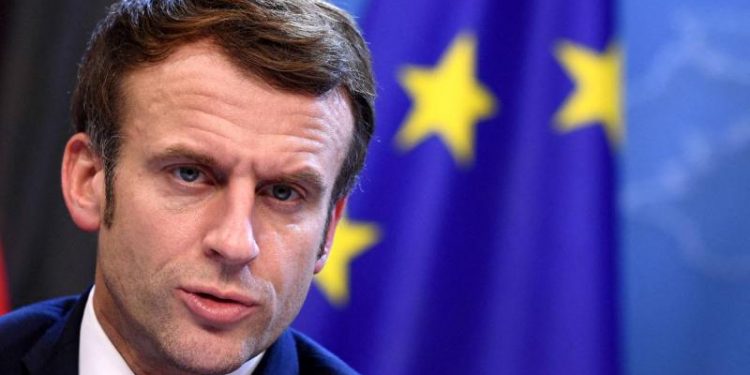Elmau (Germany): The Latest on the G-7 summit, the annual meeting of the leading democratic economies, which this year is being held in the Bavarian Alps in Germany; and on the NATO summit in Madrid, where leaders begin gathering later Tuesday.
French President Emmanuel Macron is calling on oil-producing countries to boost output and thereby lower world prices pushed up by the war in Ukraine.
He said Tuesday the prices are putting European economies in an “untenable” situation.
Speaking at the end of a G-7 summit in Germany Tuesday, Macron welcomed the group’s discussions on a price cap for oil as “a very good idea”, but added: “The difficulty is technical.”
He said it’s crucial to include all major oil-buying countries in any cap agreement for it to be effective.
Macron said he discussed boosting oil production with the president of the United Arab Emirates, and expressed hope that U.S. President Joe Biden gets a “positive response” in talks about oil in an upcoming visit to Saudi Arabia.
Macron said oil producers have an “immense responsibility given our collective dependence on them”.
He called for expanding Europe’s liquefied natural gas processing capacity and lashed out at speculation by energy traders he called “war profiteers”.
Canadian Prime Minister Justin Trudeau has called NATO plans to boost its rapid reaction force “measured and proportional” and not meant to provoke Russia.
Speaking on Tuesday at the end of a G-7 summit in Germany and before travelling to Spain for a NATO summit, Trudeau said Canada was “committed to making sure we continue to stand up against Russian threats and Russian posturing”.
According to the government, about 1,400 Canadian troops are currently deployed in central and eastern Europe as part of NATO assurance and deterrence measures.
“The response that we are taking to Russia’s illegal actions is measured and proportional,” he said, adding it should not be considered a “provocative” move.
“We are looking at ensuring that Russia knows we will be there to defend democracies,” Trudeau said.
NATO’s chief says Russia’s invasion of Ukraine has sparked a “fundamental shift” in the alliance’s defense policy, and NATO members will have to invest more in military spending in what is now a more unstable world.
NATO Secretary-General Jens Stoltenberg spoke as the alliance’s leaders began gathering Tuesday in Madrid for a summit that will set the course of the alliance for the coming years.
Stoltenberg said the meeting would chart a blueprint for the alliance “in a more dangerous and unpredictable word”.
Top of the agenda is strengthening defences against Russia and supporting Ukraine in its fight against Moscow’s invasion.
Stoltenberg said “we hope to make progress” at the gathering in breaking a logjam over applications by Sweden and Finland to join the alliance. Turkey is blocking the move and says the Nordic pair must change their stance on Kurdish rebel groups that Turkey considers terrorists.
The three countries’ leaders are due to meet in Madrid, alongside Stoltenberg, later Tuesday.
German Chancellor Olaf Scholz is defending the decision by Group of Seven leaders to soften their commitments on ending public support for fossil fuel investments.
The leaders say the war in Ukraine means time-limited support for new natural gas extraction projects may be necessary.
The G-7 nations said in a statement on Tuesday at the end of their three-day summit that “in these exceptional circumstances, publicly supported investment in the gas sector can be appropriate as a temporary response”.
That contrasts in part with a previous pledge made last month by G-7 climate ministers, who said that the seven major economies would “align official international financing with the goals of the Paris Agreement”.
Environmental campaigners, scientists and UN Secretary-General Antonio Guterres have spoken out against any additional fossil fuel investments by rich, developed nations.
But Scholz told reporters that “gas will be needed temporarily and that is why there may be investments that make sense, in this transitional phase, and that therefore may need to be supported”.
One of the arguments made by German officials in favour of supporting new natural gas development projects is that it could spare them having to burn more polluting coal to meet their energy needs.
Environmental groups argue that building additional pipelines and other infrastructure for surging US LNG exports to Europe and for other fossil fuels will lock in increased carbon use for years to come.
AP






































